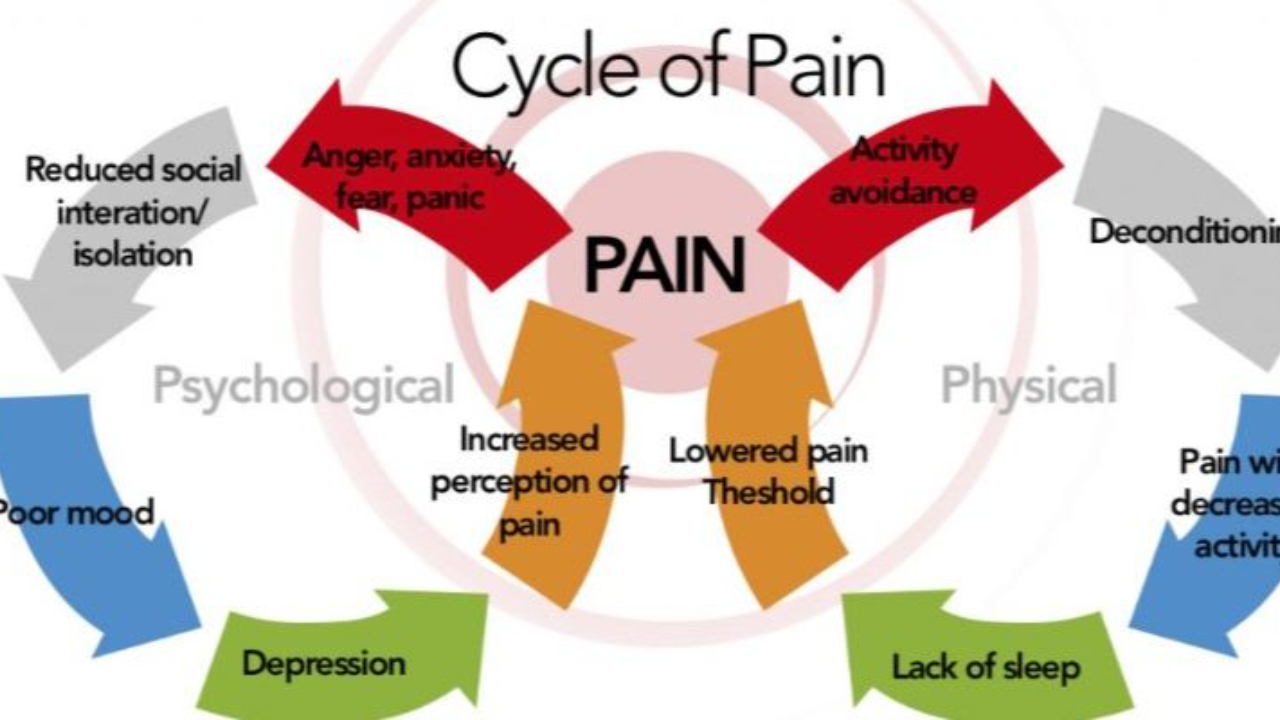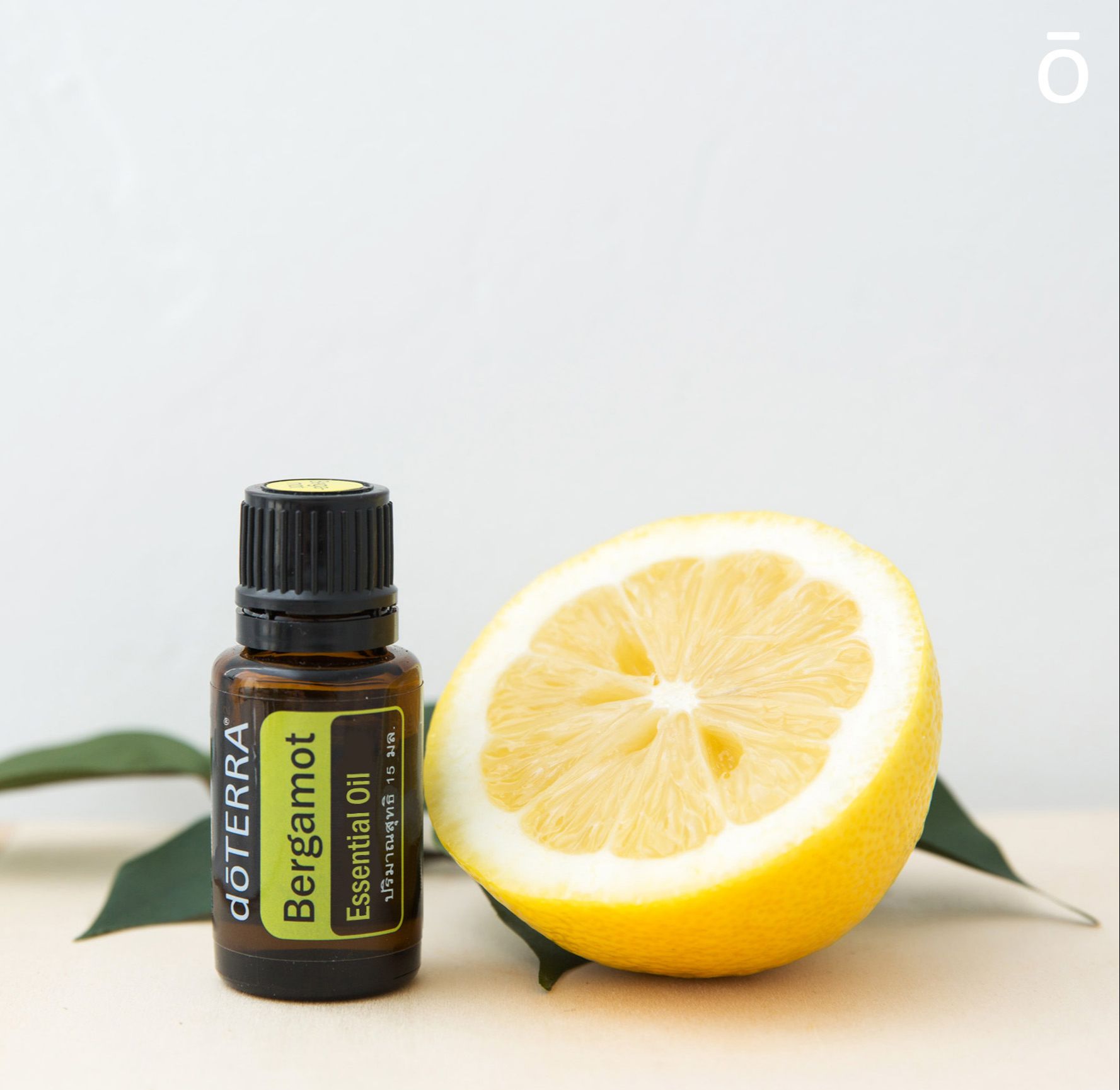Stress keeping you stuck in a chronic pain cycle?
May 16, 2024
We're going to discuss the intricate connection between stress, anxiety, and chronic pain. Today, we dive into the profound impact that psychological factors can have on physical health, particularly in the realm of persistent pain. Join us as we explore the mechanisms through which stress and anxiety may exacerbate or even contribute to chronic pain conditions. I aim to shed light on this complex interplay and empower you with knowledge to better manage your well-being. Let's embark on this journey together towards understanding and alleviating the burden of chronic pain.
Understanding the Mechanisms: How Stress and Anxiety Fuel Chronic Pain

Stress and anxiety can significantly contribute to chronic pain through a variety of interconnected physiological and psychological mechanisms. Let's break this down some.
Muscle Tension: Stress and anxiety often lead to increased muscle tension as the body's natural response to perceived threats or challenges. Prolonged muscle tension can result in muscle stiffness, tightness, and discomfort, exacerbating existing pain conditions such as tension headaches, neck pain, and back pain.
Central Nervous System Sensitization: Chronic stress and anxiety can sensitize the central nervous system, heightening its response to pain signals. This heightened sensitivity can amplify the perception of pain, making it feel more intense and persistent even in the absence of physical injury or damage.
Inflammation: Both stress and anxiety can trigger inflammatory responses in the body, contributing to the development or exacerbation of inflammatory pain conditions such as arthritis, fibromyalgia, and inflammatory bowel disease. Chronic inflammation can worsen pain symptoms and interfere with the body's natural healing processes.
Altered Pain Processing: Stress and anxiety can disrupt the brain's pain processing pathways, leading to changes in how pain signals are perceived and interpreted. This can result in an increased susceptibility to pain, as well as difficulties in regulating emotions and coping with pain-related distress.
Sleep Disturbances: Stress and anxiety often disrupt sleep patterns, leading to insomnia or poor-quality sleep. Sleep disturbances can exacerbate chronic pain by impairing the body's ability to repair and regenerate tissues, increasing inflammation, and heightening pain sensitivity.
Psychological Factors: Stress and anxiety can also exacerbate pain through psychological factors such as fear, catastrophizing, and avoidance behaviors. These factors can contribute to the development of maladaptive pain coping strategies and perpetuate the cycle of pain and distress.
Overall, the relationship between stress, anxiety, and chronic pain is complex and multifaceted, involving a combination of physiological, psychological, and behavioral factors. Addressing stress and anxiety through various therapeutic approaches, such as relaxation techniques, cognitive-behavioral therapy, and stress management strategies, can help alleviate pain symptoms and improve overall quality of life for individuals living with chronic pain.
How Aromatherapy May Be Able to Help YOU
Aromatherapy is a holistic healing practice that utilizes essential oils extracted from plants to promote physical, mental, and emotional well-being. These essential oils are typically derived from aromatic plants and are believed to possess therapeutic properties that can positively influence mood, alleviate stress, and address various health concerns. Aromatherapy is often administered through inhalation, topical application, or diffusion, allowing the aromatic molecules to interact with the body's limbic system and promote relaxation, balance, and overall wellness.
Aromatherapy's effects on the body operate on both a physiological and psychological level, leveraging the properties of essential oils and the body's response to scent.
Olfactory System: When essential oils are inhaled, their volatile molecules travel through the nasal passages and stimulate olfactory receptors. These receptors send signals to the olfactory bulb, which is part of the brain's limbic system, responsible for emotions, memories, and behavior.
Limbic System Activation: The limbic system processes the scent information and triggers various physiological responses, such as the release of neurotransmitters like serotonin and endorphins, which are associated with mood regulation and pain relief. This activation can induce relaxation, reduce stress, and promote a sense of well-being.
Pharmacological Effects: Essential oils contain bioactive compounds that can exert pharmacological effects when absorbed into the bloodstream through inhalation or topical application. For example, certain compounds in lavender oil, such as linalool and linalyl acetate, have been shown to have anxiolytic (anxiety-reducing) and sedative properties when interacting with neurotransmitter receptors in the brain.
Psychological Effects: Aromatherapy can also have psychological effects through associative learning and conditioning. For instance, if someone associates a particular scent with relaxation or comfort, simply smelling that scent in the future can evoke those feelings, leading to a perceived reduction in stress and anxiety.
In summary, aromatherapy works by stimulating the olfactory system, activating the limbic system, exerting pharmacological effects, and influencing psychological responses, ultimately promoting relaxation, reducing stress, and enhancing overall well-being.

On of my favorite essential oils to help diffuse and calm my brain down is Bergamot by Doterra. This has a light citrusy aroma. When looking for an essential oil to help calm and restore you'll want an essential oil high in Limonene, Linalool, and Linalyl Acetate. These chemical constituents interact with the receptors in the brain to promote a calming effect, improve sleep, and decrease your response to stressful situations. I've had great success with a protocol I'd like to share with you.
- Put 2 drops of Bergamot essential oil in the palms of your hands.
- Rub your hands together.
- Cup your hands over your mouth and nose.
- Breathe deeply for 30 seconds.
- As you are breathing in the aroma say a positive affirmation to yourself. Example "calm mind, calm body". Repeat this affirmation for 30 seconds.
- Repeat 3 times daily.
- Place 3-4 drops of the essential oil in a diffuser by your bed each night to breathe in while you sleep.
Of course this is only one piece of the puzzle of chronic pain mastery. Research shows that if you can diffuse how you react to pain, take the negative emotions out and replace them with good thoughts, feelings, and emotions, you can MASTER your chronic pain tool. Just like I did.
To get your very own Bergamot oil, click here.
Cheers!
Nicole
Stay connected with news and updates!
Join my monthly mailing list to receive the latest news and updates about chronic pain MASTERY.
Don't worry, your information will not be shared.
I hate SPAM. I will never sell your information, for any reason.

